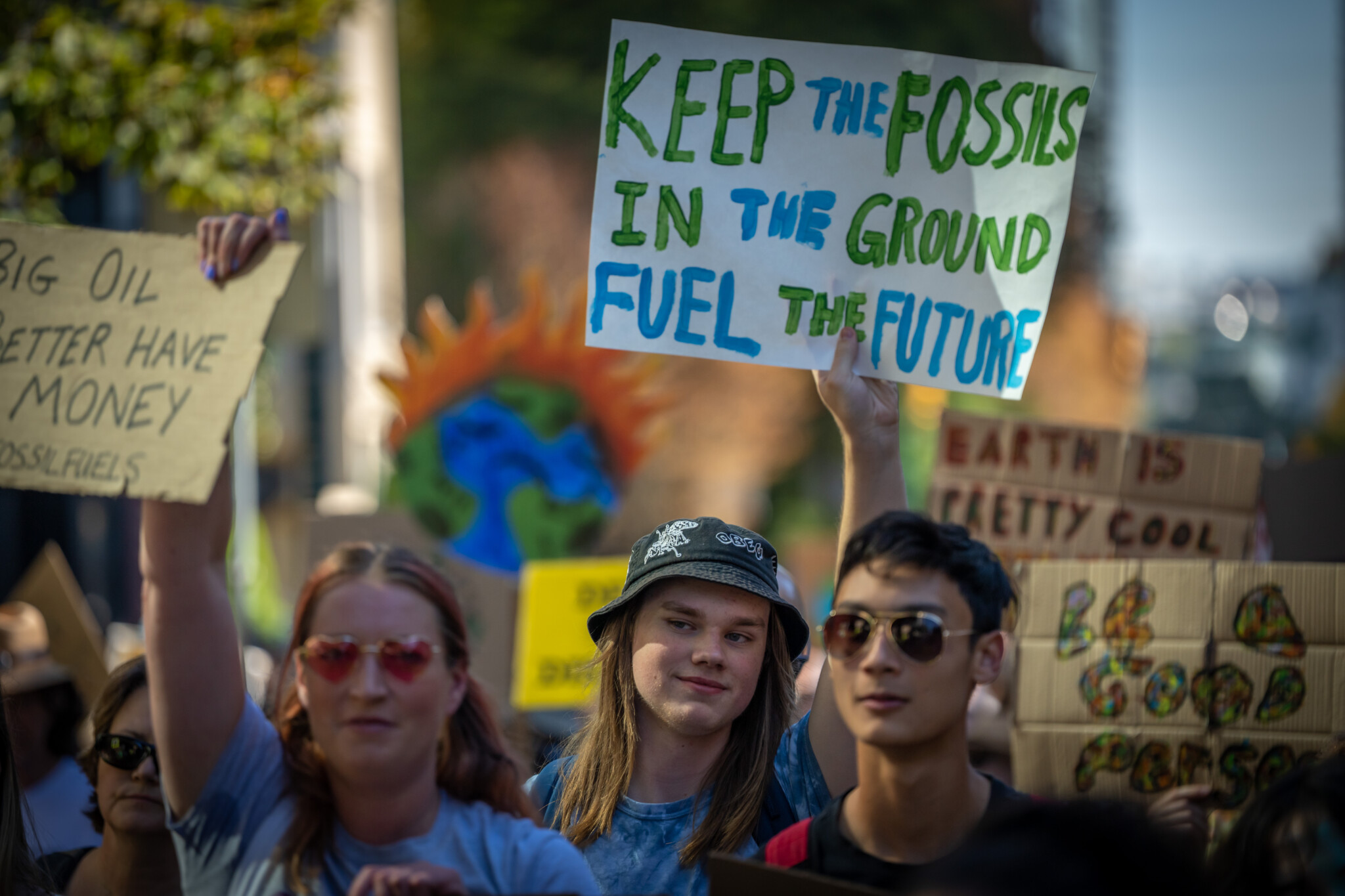The following is the fourth in a series of French-language articles presented in collaboration with the Montreal Economic Institute. The English translation is included below.
Les groupes militants écologistes sont passés maîtres dans l’art d’atteindre leurs objectifs puis de rapidement établir de nouvelles cibles toujours plus ambitieuses. La vitesse à laquelle ils sont en mesure de changer le climat d’opinion médiatique est également particulièrement déstabilisante.
On n’a qu’à penser à la campagne contre l’exportation du pétrole de l’Ouest canadien. En un rien de temps, un battage médiatique incessant s’est déployé afin de démoniser une ressource naturelle qui contribue grandement à l’augmentation du niveau de vie de l’ensemble de nos concitoyens.
Au Québec, quelques années à peine avant le rejet du projet de pipeline Énergie Est, les élus provinciaux s’affairaient à tenter de sauver la raffinerie de Shell, à Montréal-Est. Jusqu’à sa fermeture en 2010, les milliers d’emplois qu’elle fournissait pesaient encore lourd dans la balance. Tous les principaux partis politiques s’étaient alors empressés de présenter un projet de sauvegarde de la raffinerie, plutôt que de laisser sa transformation en terminal pétrolier se concrétiser.
Il est troublant de constater à quel point ces mêmes élus ont changé leur fusil d’épaule rapidement afin de s’opposer à un projet de transport de pétrole passant sur le même territoire et ayant le potentiel de contribuer tout autant à la prospérité québécoise et canadienne.
De nos jours, les mêmes efforts sont déployés par ces groupes afin d’empêcher l’exploitation de mines de minéraux critiques au Canada et ailleurs dans le monde, qui sont pourtant essentielles afin de manufacturer des véhicules à batterie électrique.
Ce phénomène se répète de nombreuses façons. Alors que le Québec fera face à des pénuries d’électricité au cours des prochaines années, les militants écologistes s’opposent à l’idée même de nouveaux barrages hydroélectriques ou même de nouveaux parcs éoliens. Ailleurs en Occident, ce sera plutôt une opposition au nucléaire. Et c’est sans parler de l’idée pourtant tout à fait logique et conséquente de remplacer le charbon par des sources d’énergie moins polluantes comme le gaz naturel, ou même encore des technologies ayant comme potentiel de capter et d’emmagasiner les gaz à effet de serre.
Cela semblera incohérent à celui qui pense tout bêtement que ces groupes militants s’intéressent uniquement à l’assainissement de l’environnement. Mais ce serait faire grave erreur. Comme le fait régulièrement valoir l’intellectuel public français Ferghane Azihari, l’objet véritable de leur démarche est un projet de déconstruction de notre société, où l’Homme doit laisser la nature reprendre « ses droits ». Autrement dit, c’est la légitimité du monde que nous avons créé qui est remise en question. Il ne s’agit pas de simplement restaurer la nature, mais bien de réensauvager le monde.
Afin de savoir quelles sont les prochaines revendications de nos militants locaux, il s’agit parfois de regarder vers l’Europe afin d’observer les plus récents développements puisque le Vieux Continent semble trop souvent être en avance quand vient le temps de trouver d’ingénieuses façons de freiner le progrès. On remarquera alors que l’idée de réensauvager le monde a progressé jusqu’au point où on laisse croître de façon rapide une population de loups qui terrorise le bétail et vient nuire au travail des agriculteurs, qui sont par ailleurs assaillis de toute part en raison des revendications écologistes.
Dans son expression la plus simple et directe, c’est un rejet de la modernité et du confort qu’elle peut offrir qui est au cœur de la logique militante. En effet, l’idée n’est pas simplement de réduire le nombre de voitures thermiques sur nos routes : ce qu’il faut, c’est réduire le nombre de voitures, point. Alors que le vélo est aujourd’hui présenté comme une alternative valable, il sera demain condamné comme trop polluant étant donné l’utilisation d’acier et de caoutchouc.
Si les militants écologistes connaissent tant de succès, c’est que nous leur avons concédé d’emblée le terrain de la moralité et de la philosophie qui sont sous-jacentes à la question véritable. Il est plus que jamais nécessaire de redonner ses lettres de noblesse à la civilisation et à l’organisation de la société par l’humain. Afin de continuer de progresser, nous devrons renouer avec l’humanisme des Lumières, qui reconnaissait pleinement le rôle déterminant de notre espèce pour façonner son environnement dans l’optique d’un plus grand épanouissement.
C’est cette vision d’un monde où chaque personne est libre d’améliorer son sort et la qualité de vie de ses proches que nous devons mettre de l’avant afin de contrer les discours alarmistes. Si l’ingéniosité humaine nous a bien montré quelque chose au fil des ans, c’est qu’elle est une ressource infinie, nous permettant de conserver et d’accroître ces conforts modernes tout en nous adaptant aux nouvelles réalités.
L’idée n’est pas de nier la contribution de l’activité humaine au phénomène mondial des changements climatiques, mais plutôt de voir dans quelle mesure nous pouvons réellement accorder de la crédibilité aux militants écologistes. Après tout, le projet de société qu’ils mettent de l’avant en est un qui nuira forcément aux populations des pays les plus pauvres en plus de réduire la qualité de vie dans les pays plus développés.

People march during the Global Climate Strike protest in Vancouver, September 15, 2023. Ethan Cairns/The Canadian Press.
The war on humans
Environmental activist groups are masters in the art of achieving their objectives and then quickly setting new, ever more ambitious targets. The speed at which they are able to shift the climate of public opinion is also particularly destabilizing.
Just look at the campaign against exporting oil from Western Canada. In no time at all, incessant media hype was deployed in order to demonize a natural resource that has greatly contributed to increasing living standards for our fellow Canadians.
In Quebec, just a few years before the Energy East pipeline project was rejected, provincial politicians attempted to save the Shell refinery, in Montreal East. Up until its closure in 2010, the thousands of jobs it was providing still weighed heavily in the balance. All the main political parties were quick to present a plan to save the refinery, rather than allow it to be transformed into an oil terminal.
It is troubling to see just how quickly these same politicians changed their tune in order to oppose a project for the transportation of oil passing through the same territory and having the potential to contribute just as much to prosperity in Quebec and in Canada as a whole.
These days, the same efforts are deployed by these groups in order to prevent the development of critical mineral mines in Canada and around the world, even though these are essential to the manufacture of battery-powered electric vehicles.
This phenomenon recurs in numerous ways. While Quebec will be facing electricity shortages in the coming years, environmental activists oppose the very idea of new hydroelectric dams, and even new wind farmswindfarms. Elsewhere in the Western world, the focus is opposition to nuclear power. And then there’s the entirely logical and impactful idea of replacing coal with cleaner energy sources like natural gas, or technologies for capturing and storing greenhouse gases.
This will seem inconsistent to those who imagine innocently that these activist groups are solely concerned with cleaning up the environment. But this is a serious mistake. As French public intellectual Ferghane Azihari regularly points out, their actual goal is the deconstruction of our society, in which humans must let nature reclaim “its rights.” In other words, it is the legitimacy of the world we have created that is being called into question. It’s not simply about restoring nature, but about a return to primitive wilderness.
In order to know what our local activists will clamour for next, it can be helpful to look to Europe to see the most recent developments there, since the Old Continent too often seems to lead the way when it comes to finding ingenious ways to impede progress. The idea of returning to wilderness has indeed progressed so far that a population of wolves is being allowed to grow rapidly, to the point where it is terrorizing livestock and interfering with the work of farmers, who are incidentally assaulted on all sides by environmentalist claims.
In its simplest and most direct form, it is a rejection of modernity and its comforts which is at the heart of the activist mindset. Indeed, the idea is not just to reduce the number of gas-powered cars on our roads; what is called for is the reduction in the number of cars, period. While the bicycle is today presented as a viable alternative, it will be condemned tomorrow because of its use of steel and rubber.
If environmental activists have so much success, it’s that we have conceded from the start the moral and philosophical high ground that underpins the true question. More than ever, it is necessary to reassert the nobility of civilization and the human organization of society. In order to continue to progress, we will need to rediscover Enlightenment humanism, which fully recognizes the determining role of our species in fashioning its environment with a view to greater flourishing.
It is this vision of a world where we are all free to improve our lot and the quality of life of our loved ones that we must champion if we are to counter alarmist narratives. If human ingenuity has taught us anything over the years, it is that it is an unlimited resource, allowing us to maintain and increase these modern comforts all while adapting ourselves to new circumstances.
The idea is not to deny the contribution of human activity to the global phenomenon of climate change, but rather to determine just how much credibility environmental activists really deserve. After all, the societal project they are pushing is one that will necessarily harm the populations of the poorest countries, in addition to reducing the quality of life in more industrialized nations.









